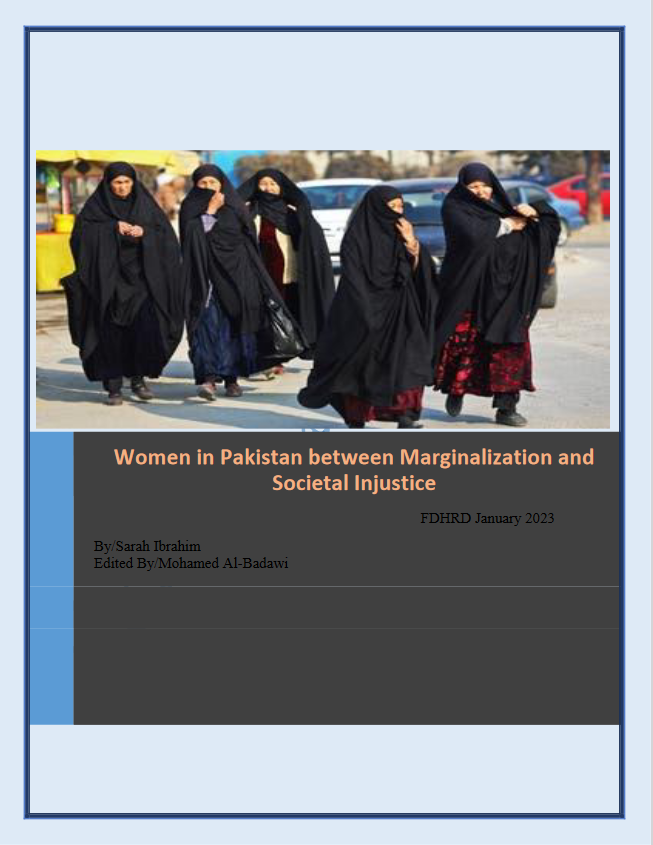Today, Thursday, February 2, 2023, The Forum for Development and Human Rights Dialogue (FDHRD) issues its report “Local Administration … Egypt’s Path to Sustainable Development,” which deals with several points related to local administration and sustainable local development, especially at the Egyptian level, represented in the following: Concepts related to local development – Foundations of Local administration – Objectives of local administration and sustainable local development – Principles of sustainable local development – Dimensions of sustainable local development – Characteristics of sustainable local development – Indicators of sustainable local development – Relations between the central government and local units – Local administration in the Egyptian constitution of 2014 – Basic regulations for local administration in Egypt – Challenges facing localities in Egypt – Development and the limits of local administrative functions in Egypt – Egypt’s 2030 Vision and the achievements of the Ministries of Local Development, and Planning and Economic Development – Obstacles facing local administration-The end and the recommendations.
The report indicated that local development is one of the main pillars of sustainable development, as it aims to achieve developmental balance between different regions. At the forefront of its tasks is the implementation of basic infrastructure projects within the local scope, in addition to its influential role in activating local investments and creating job opportunities.
In order for this sustainable local development to be achieved, there must be a local administration or a rational local system capable of identifying the main needs of citizens and working to implement them, withing the framework of the general state policy.
The Egyptian government prepared the national strategy for sustainable development, “Egypt’s 2030 Vision “, in 2015, through a participatory process that included government agencies, civil society and the private sector. The vision focused on the fact that achieving sustainable development requires localizing the goals of sustainable development, achieving balanced development, reducing the problem of increasing emigration of the population, and limiting the risks of social-spatial differentiation between local regions, which may threaten regional and social cohesion.
The most important goal of the sustainable development goals from which Egypt’s vision stems is SDG11, which stipulates: “Make cities and human settlements inclusive, safe, resilient, and sustainable.” Its success paves the way for achieving the other goals contained in many other sustainable development goals.
The strategy also seeks to achieve justice through achieving equal rights and opportunities, providing resources in all geographical areas, both rural and urban, enhancing financial inclusion, supporting the participation of all groups in development, and strengthening the spirit of loyalty and belonging to the Egyptian identity.
The strategy has adopted the concept of sustainable development as a general framework intended to improve the quality of life at the present time without prejudice to the rights of future generations to a better life.
And the report concluded with the following recommendations:
- Creating new sources of funding for localities’ budget away from the state support, especially since money is the backbone of sustainable local development. This is in addition to working to increase government funding allocated to localities from the state’s general budget, which increases the localities’ contribution to achieving sustainable local development.
- Enhancing the actual application of administrative decentralization, expanding the functions of local councils, and gradually applying financial decentralization.
- Establishing a strong base in the localities to confront corruption in all sectors. Localities are the main gateway to reforming or corrupting many projects.
- Spreading the culture of decentralization, in particular, and democracy in general, as a basis for the efforts being made in the direction of decentralization, without which it is not possible to proceed successfully in this path. The citizens’ support for this approach is necessary, since the executive leaderships resist the introduction of decentralization so as not to undermine the great powers that you enjoy.
- Setting developmental policies concerned with creating job opportunities, and natural, human, economic and educational development for the poorest areas, and working to combat illiteracy. The success of any program aiming to develop society does not only depend on financial resources, but rather reaches the intangible resources represented in human capital. Individuals’ awareness of society’s problems and their enthusiasm for solving them enables them to address any internal or external resistance against the development process.
- Raising awareness of the importance of local councils, which in turn preserves and consolidates sustainable development. This is because localities relate to all the details that improve the standard of living of citizens, starting from controlling prices, public transportation and important vital services, to creating political awareness among citizens and eliminating corruption from the roots, through training, learning and human development for workers, and introducing sustainability concepts into municipal programs.
- Paying attention to developing sustainable development programs, with the participation of stakeholders, such as programs for resource recycling, efficient and effective water management, and comprehensive planning for land use.
- Accelerating the development of a new local administration law that defines a clear role for local units in achieving sustainable local development, developing methods for selecting local leaders, provided that they have experience and academic qualifications, and working to establish information centers in local councils.
- Encouraging participation between the public and private sectors to cooperate in achieving local development, limiting the role of the central government to setting general policies and leaving implementation to local parties.
On one hand, the founder of FDHRD, Saeed Abdel Hafez, stressed that the local administration is the link between the central government and the local citizen. Therefore, it proceeds, through the tasks it carries out and the powers vested in it, to achieve great importance in achieving sustainable development at the local level.
The issue of local administration and local economic development must be reconsidered. It must play the developmental role entrusted to it and achieve sustainable development, through the local administration performing a set of political, social, administrative and economic functions.
Hajar Adel, a researcher at the FDHRD, also indicated that the localities are considered the link between the local communities and the executive and legislative authorities in the country. They are primarily responsible for the economic, urban and social development of their local communities, in partnership with the executive bodies of their administrative units.








